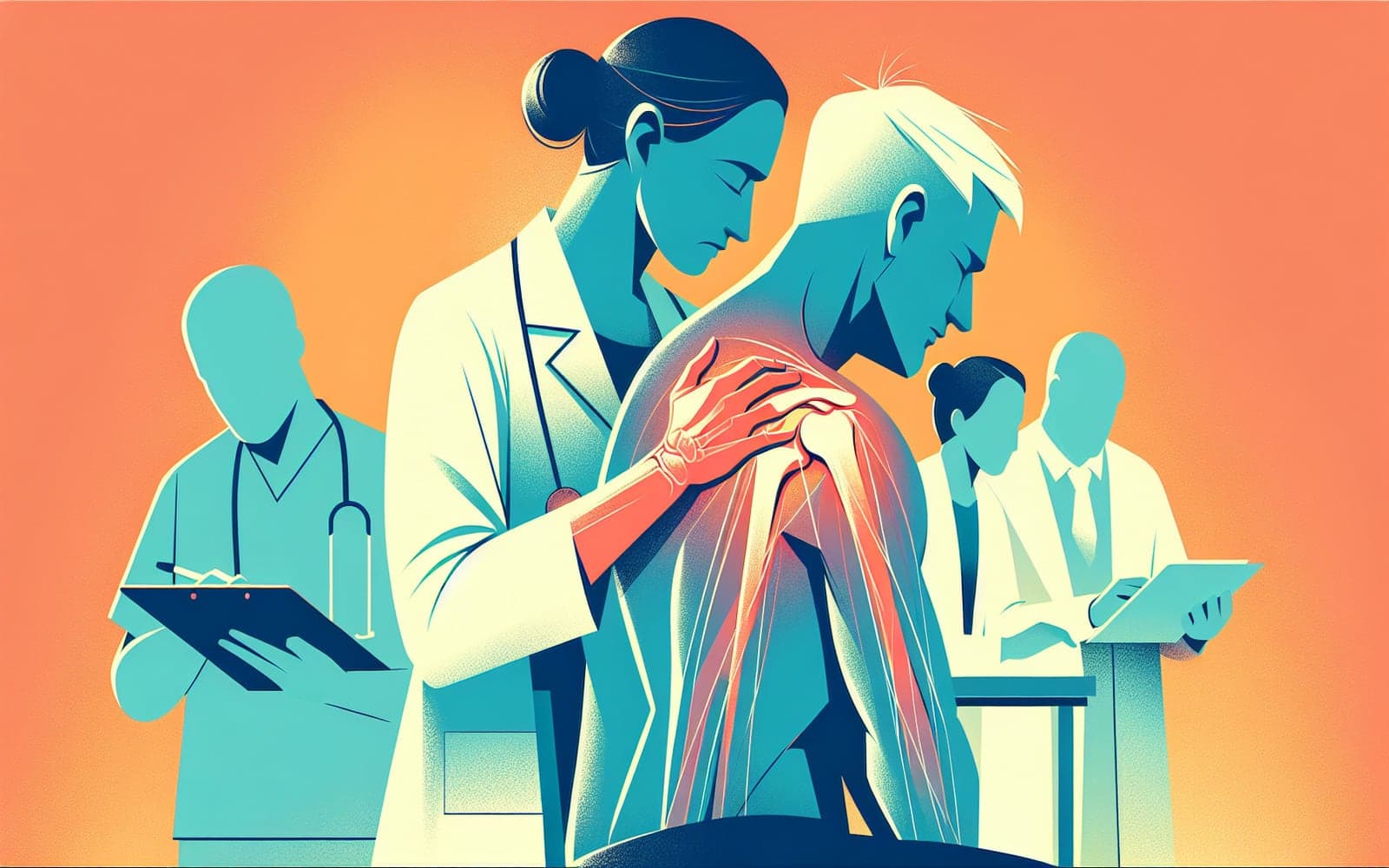Contents
-
Common Symptoms
-
The Pain Puzzle
-
When to See a Doctor
Shoulder Pain: Is It a Rotator Cuff Tear?
Shoulder Pain: Is It a Rotator Cuff Tear?
The Big Question
Shoulder pain is common, but how do you know if it's a rotator cuff tear? Let's explore the symptoms that might point to this condition.
Contents
-
Common Symptoms
-
The Pain Puzzle
-
When to See a Doctor
Common Symptoms
Rotator cuff tears often present with pain and weakness in the shoulder. Pain typically occurs over the lateral deltoid and worsens with activities like lifting, reaching, or lying on the affected side. However, not all tears are painful, and some may only cause weakness.
The Pain Puzzle
Pain from rotator cuff tears can be misleading, as it might be due to other conditions like bursitis. The presence of pain can vary from person to person, and some tears remain completely painless. Understanding this can help manage expectations and treatment plans.
When to See a Doctor
If shoulder pain persists or is accompanied by weakness, it's time to consult a healthcare professional. Early diagnosis can prevent further damage and guide treatment. A doctor will assess your symptoms and may recommend tests to confirm a rotator cuff tear.
FAQs
Where is rotator cuff pain felt?
Pain is usually over the lateral deltoid.
Is all rotator cuff pain from tears?
No, pain can also come from conditions like bursitis.
Do all tears cause pain?
No, some rotator cuff tears are painless.
When should I see a doctor?
If pain persists or is accompanied by weakness.
Key Takeaways
Identifying the right symptoms is crucial for diagnosing rotator cuff tears.
Additional References
-
Gerber C, Galantay RV, Hersche O. J Shoulder Elbow Surg 1998; 7:352.
-
Reilly P, Macleod I, Macfarlane R, et al. Ann R Coll Surg Engl 2006; 88:116.
This article has been reviewed for accuracy by one of the licensed medical doctors working for Doctronic.












